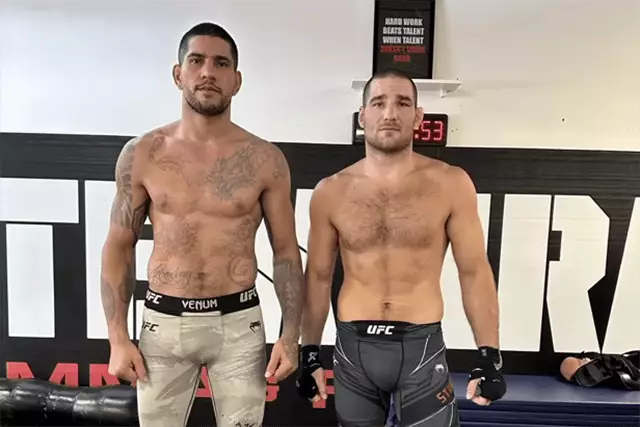In the ever-evolving landscape of the Ultimate Fighting Championship (UFC), strategic decisions, both inside and outside the Octagon, can immensely impact an athlete’s performance. Recently, former heavyweight champion Daniel Cormier expressed concerns regarding Alex Pereira’s decision to corner fellow fighter Sean Strickland during a critical period in Pereira’s fight camp. Pereira, who is preparing to defend his light heavyweight title against Magomed Ankalaev, is set to travel to Australia to support Strickland in a title fight rematch against middleweight champion Dricus Du Plessis at UFC 312. This article delves into the implications of such choices and the intricacies of fighter relationships in the high-pressure world of mixed martial arts.
Pereira’s decision to fly halfway around the world to corner Strickland can raise eyebrows for several reasons. Notably, this trip takes place less than a month before Pereira’s own title defense. Travel fatigues athletes, impacting their training and recovery; the stark contrast in time zones can disrupt circadian rhythms, leading to potential sleep deprivation and compromised performance. Cormier’s cautionary remarks emphasize that such travel is not merely about physical preparation but also about maintaining a mental edge. When fighters blend the rigors of a long journey with the demands of training, the risks can escalate quickly.
Moreover, UFC training camps are meticulously planned, often involving intense caloric management, fluid recovery, and peak physical performance timelines. By diverting focus away from his camp, albeit briefly, Pereira runs the risk of jeopardizing his preparation against a fighter like Ankalaev, who brings a uniquely formidable style characterized by strong wrestling capabilities. Cormier’s insights suggest that a mere friendship with Strickland might not justify the potential complications stemming from this decision.
However, on the flip side, this situation highlights a nuanced aspect of mixed martial arts: the profound bonds that can develop between fighters. Cormier points to the strength of Pereira’s relationship with Strickland, suggesting that such an alliance is rare in an industry that often places individual glory above camaraderie. In an environment where competition is relentless, supportive relationships can serve as a critical buffer, helping fighters tackle the mental and emotional toll of training and competition.
This notion raises an important question: how much does camaraderie weigh against the tactical necessities of an athlete’s journey? While the majority of fighters focus entirely on their individual careers, the willingness to invest time and effort in supporting a friend reflects a unique aspect of Pereira’s character. It begs the question of whether community can bolster performance or if it inherently places one’s personal aspirations at risk.
While Cormier acknowledges the perils of Pereira’s choice, he recognizes an undeniable truth: the Brazilian fighter has proven time and time again that his intuitive decisions lead to success. Cormier, who has been a keen observer of Pereira’s career rise, asserts that the light heavyweight champion has built an exceptional legacy in a remarkably short time. This recognition affords Pereira a certain latitude in how he navigates his career, as every victory has bolstered his reputation and capability.
Ultimately, Pereira must balance the weight of responsibility he feels towards Strickland with the tactical implications of his decisions. While Cormier expresses skepticism, he also respects Pereira’s journey, revealing a fascinating dichotomy: friends versus strategy.
As the UFC gears up for UFC 312, the impact of Pereira’s choice to corner Strickland will be closely monitored. All eyes will be on the Sydney card and the subsequent clash between Pereira and Ankalaev. The mixed emotions surrounding this decision epitomize the larger fight landscape, where personal ties and professional ambitions intersect. Whatever the outcome, one can surmise that this scenario will serve as a case study for fighters and coaches alike as they navigate the fine line between friendship and the quest for greatness in MMA.

